In this installment of The ASCO Post’s Living a Full Life series, guest editor Jame Abraham, MD, FACP, spoke with Nina Shah, MD, Global Head of Multiple Myeloma Clinical Development and Strategy, Hematology, Oncology Research and Development at AstraZeneca. She is a hematologist who specializes in the treatment of multiple myeloma and new drug development.
NINA SHAH, MD
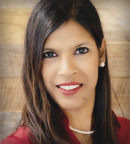
- On pursuing a career in medicine: “The idea of medicine formed in my ninth-grade biology class, which was challenging and interesting. I knew I loved biology, science, and people, and all of those three things put together made me pursue a career in medicine.”
- On a ‘life-changing’ career experience: “I chose to work in the lab of Dr. Raphael Clynes, where I focused on dendritic cell biology and cancer immunotherapy. That was a life-changing experience for me, shifting and sharpening my interest into immunology and how immunology and cancer are related.”
- On academic oncology vs industry: “Surprisingly, industry is about all the things I have been interested in my whole career, just in a different light. It is about science, discovery, patients, and people. I found the skills I had as an academic oncologist translated well to an industry setting, although in a different context.”
Dr. Shah was born Nina Das, in Michigan, to parents who had immigrated to the United States from India about 7 years before. “My dad was an electrical engineer, and my mom eventually ended up being a Montessori teacher, which was influential for me. Both were always very supportive of me and my sister; although they came from traditional Indian backgrounds and had two girls, they reared us to be as successful as possible and to fulfill our full potential,” she related.
Dr. Shah continued: “Moreover, they always supported us to be information seeking, as well as achievers, and they continuously stressed there were no limits to what we could accomplish. That said, though, I really came to medicine kind of on my own, although my parents were certainly not unhappy about it.”
Asked what initiated her decision to become a doctor, Dr. Shah, reflected on her freshman year of high school. “The idea of medicine formed in my ninth-grade biology class. It was very difficult, and I think it might’ve been my first B, but biology was something challenging and interesting. I knew I loved biology, science, and people, and all of those three things put together made me pursue a career in medicine. Looking back, although I was very interested in the sciences and math, I also liked developing people skills. Although I didn’t realize it at first, I am an outgoing and friendly person, which ultimately played a big role in my career path to oncology,” she explained.
Peripatetic Youth
During her formative years, the Das family moved from Michigan, to South Carolina, and then to Delaware. “When I was 16, we moved to Connecticut, and I actually moved in the middle of high school, which was traumatic socially but actually a great experience. After finishing high school, I went to Harvard for my undergraduate degree, which was a wonderful experience. That is a place where I learned even more that I wanted to become a physician. I loved my biology classes, but one thing I recognized about myself was there were other dimensions to me, not just becoming a physician, but becoming a physician who engaged with other people,” she shared.
Dr. Shah continued: “At that time, I also became aware of the fact that I was interested in how the mind-body connection exists. I did my senior thesis on the immunologic outcomes of a religious experience. Being very religious, I always wanted to understand whether pursuing religion or some sort of faith or spirituality could impact immunoglobulin levels for healthy subjects. I pursued this mind-body connection course of study by doing a major in cognitive neuroscience, which was a joint concentration between biology and psychology.”
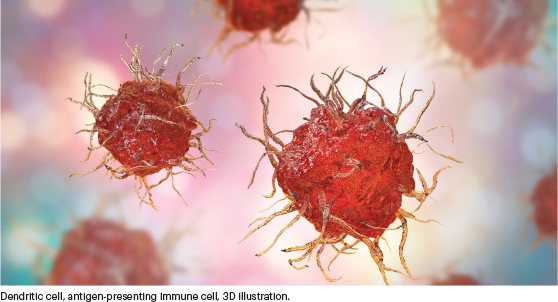
Asked to pause her story and elaborate on her mind-body pursuit, Dr. Shah replied: “I became interested in this area of investigation from reading about the mind-body connection, especially the work of Dr. Herbert Benson. He was a pioneer in mind-body medicine and one of the first Western physicians to bring spirituality and healing into medicine. In the 1990s, he served as Director Emeritus of the Benson-Henry Institute and Mind Body Medicine Professor of Medicine, Harvard Medical School.”
On to the Big Apple
In 1998, after receiving her MA and BA degrees in psychology and biology (cognitive neuroscience), Dr. Shah pursued her medical degree at the New York University School of Medicine. “It was so fascinating that it led me to consider a career in hematology,” she said.
After attaining her medical degree, Dr. Shah did a residency in internal medicine at Columbia University Medical Center and had an opportunity that would become pivotal in her research career. “After residency, I had 2 years where I had a little pause to line up with my partner, so I chose to work in the lab of Dr. Raphael Clynes, where I focused on dendritic cell biology and cancer immunotherapy. That was a life-changing experience for me, shifting and sharpening my interest into immunology and how immunology and cancer are related. This was back in 2005 and 2006, and there was little going on in immunotherapy with cancer. Monoclonal antibodies had been developed, but we were not thinking about all the things that ultimately came to be. We had no idea at the time, but it was so fascinating to me how T cells and dendritic cells worked, and I was really excited to be in that lab.”
Key Mentors: From MD Anderson and UCSF
According to Dr. Shah, her lab experience paved the way for the next leg of her academic journey, as she entered MD Anderson for a 3-year hematology-oncology fellowship. “I joined the faculty at MD Anderson in a stem cell transplant position. In 2010, there was no chimeric antigen receptor (CAR) T-cell industry–sponsored trials, so I was excited to start to work in cellular therapy for myeloma,” she commented.
It was at MD Anderson where Dr. Shah met Elizabeth J. Shpall, MD, a key mentor in the development of her career. “Dr. Shpall was the first translational investigator I’d ever worked with, a true clinician-researcher who took what she learned in the lab and applied it to the bedside. She
“Being an oncologist is one of the most gratifying career paths ever, for all physicians but particularly for women. Oncology is something special.”— NINA SHAH, MD
Tweet this quote
had been one of the pioneers of cord blood transplant and saw cord blood not only as a hematopoietic cell source, but also as an immunotherapy cell source. When I went to her about doing a project, she immediately took me on and actually suggested a project using natural killer cells from cord blood for multiple myeloma, because I was interested in multiple myeloma.”
Dr. Shah continued: “It was a transformative time for my career. I was on the faculty from 2010 to 2016, but as often happens with hematology and cancer, the world changed. Suddenly, cellular therapy wasn’t something you do in a lab at a university; it was something that pharma was doing. And the trials that were happening required me to broaden my horizon not just to be in stem cell transplantation, but to be in nontransplant-based myeloma as well,” she explained.
Dr. Shah shared a few more comments on the impact of her mentorship with Dr. Shpall. “She integrated me in the department and ultimately got me a job. She pushed me to get a PI lead in a national multicenter cooperative group trial, which was so impactful to me. I can’t tell you the number of opportunities she gave me, which is why, to this day, I always count her as the central figure in my academic development.”
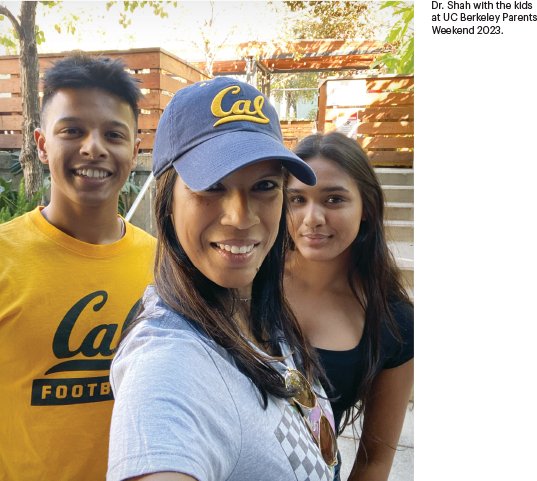
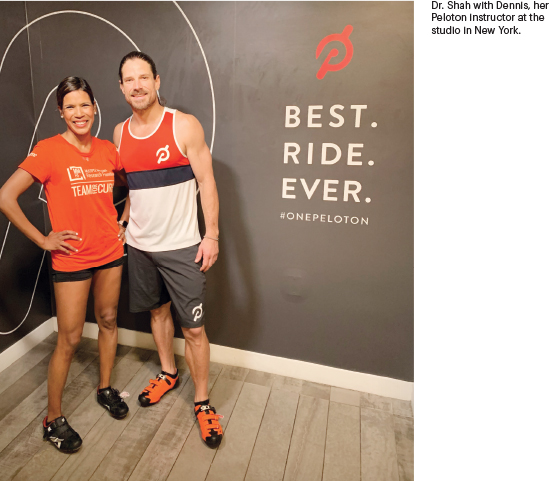
In 2017, following her career-changing tenure at MD Anderson, Dr. Shah ended up transitioning to the University of California, San Francisco (UCSF), where she met her next mentor, Dr. Tom Martin. “Tom was a mentor-partner who gave me opportunities I had not had before, including heading cellular therapy trials that were run by industry and other immunotherapy-based trials. He helped me to grow my specialization in multiple myeloma, since the program did not only transplant-based therapy, but also nontransplant-based general myeloma therapy. To this day, even though I have another position, I still do clinic there,” she noted.
Industry Knocks
According to Dr. Shah, she wasn’t planning a career move until an unexpected opportunity at AstraZeneca arose in 2022. “During my time at UCSF, I realized I loved thinking about the myeloma patient, myeloma drug development, and the patient experience. So, when I was approached about this job, it seemed there would be a way for me to impact all three—and potentially on a larger scale—because this would be building a myeloma pipeline from the ground up. It was a tough decision, but a respected colleague I knew from the American Society of Hematology said, ‘I think you’d be great for this job.’ So, I listened to the offer and looked at the potential for the pipeline; I thought I could maybe make an impact in a different way, change what I do, learn a different skill, and still have some clinical time back at UCSF. I could pivot a little bit to do something different in myeloma, although still focused on that disease. Given the wider breadth it offered, I accepted and am so happy with my decision,” said Dr. Shah.
Academic Oncology vs Industry
Asked to briefly compare and contrast her career move from academia to industry, Dr. Shah responded: “Surprisingly, industry is about all the things I have been interested in my whole career, just in a different light. It is about science, discovery, patients, and people. If you are interested in working with all those factors, you can have a wonderfully successful career in academic oncology and/or you could have a wonderfully successful career in industry. The major differences I see from a career experience standpoint in academic oncology vs industry is that in academic oncology, you are kind of your own boss. You decide where your career is going, what interests and projects you want to pursue. But in industry, you’re more like a member of a rowboat, working with others in the role that you can to make one thing happen. It’s a lot more team-focused for a particular outcome, and my work has the potential to have an impact on a global level. I found the skills I had as an academic oncologist translated well to an industry setting, although in a different context.”
Opportunities in Industry
Asked about career opportunities in industry for young female oncologists seeking to broaden their path, Dr. Shah noted: “I cannot speak for all companies, but some companies, including ours, have some fellowship opportunities. You can learn how the industry works and maybe eventually go on to pursue a career in industry.”
Guest Editor
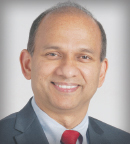
Jame Abraham, MD, FACP
Dr. Abraham is Chairman of the Department of Hematology and Medical Oncology at Cleveland Clinic and Professor of Medicine at Lerner College of Medicine.
When asked about the importance of mentorship for young female oncologists, she added: “I encourage women to attend meetings, such as the annual Leadership Empowerment and Development Conference. There’s a nice mix of both industry and clinical physician women, who are able to mentor each other. Many companies are putting forth focused efforts on women; for example AstraZeneca recently launched the HERmatology initiative, which seeks to promote female representation in academic hematology. My biggest piece of advice is to make sure you talk to people from industry and always consider an open communication line. You may discover something they can tell you about a job or a life there that will be informative to you.”
Dr. Shah offered some further advice: “It’s important to do your homework; figure out what the day to day is there, what you’d be focusing on, and what your pathway could be thereafter. In academic medicine, we know what our pathway is. We do enough clinical trials, we see enough patients, we publish enough, and then we’ll go and be an associate professor and a full professor, and maybe take on other roles. It’s not as clear outside of that, so it’s important to talk to people who are in industry, so you can understand what your career and day-to-day life would look like.”
Work-Life Balancing Act
When the conversation turned to achieving proper balance between a busy career and a life outside of work, Dr. Shah responded: “First off, I have two kids who are a college freshman and high school senior, so I’m just about to enter the empty nest phase. My advice is to outsource anything you can. Every time I say this, people laugh, but it’s true. I’ve never met the orthodontist, and my kids’ teeth are straight. It’s fine. No matter where I am in the world or where I am during my day, I try to make sure I’m available for my children. It’s never perfect. Life has its problems, but I think not sweating the small stuff is really helpful.”
Asked about her leisure decompression time, Dr. Shah, said: “Outside of work, my interests are people. It’s weird to say this, but after the COVID-19 pandemic, I understood how important it is to keep in contact and support each other. I spend a lot of time checking on people and making sure my friends who might be going through a tough time are okay. I also spend a lot of time exercising; I work out six times a week. I also think it’s a good example for our patients as well. And I love to travel; every time I go somewhere, I try to do one thing that is relevant to that city. Even if it is riding on one of those big bus tours, visiting one museum, or skiing in the mountains. I always try to engage in something from the local culture.”
Closing Thoughts
Dr. Shah offered a few closing thoughts for readers of The ASCO Post: “Being an oncologist is one of the most gratifying career paths ever, for all physicians but particularly for women. Oncology is something special. You have the ability to be a clinician and connect with patients in the most intimate way possible. If you stay in medicine, you’re with patients at a very critical inflection point in their lives. However, if you decide that’s not your cup of tea and you like more clinical trial design and execution, you can easily move to a career in industry and have a whole other vast arena of opportunities for you. This field has everything a doctor could dream of—clinical research, challenging scientific advances to keep up with, intimate patient relationships, and the opportunity to grow and enhance every aspect of yourself as a physician and as a person. I am so fortunate and am thankful for the career path I’ve had.”

